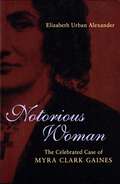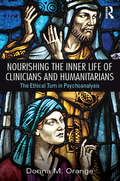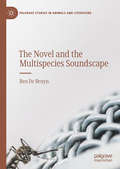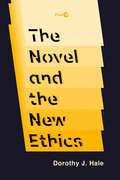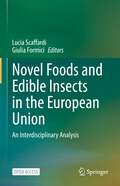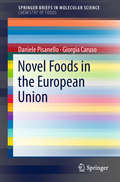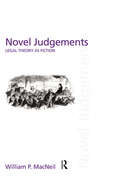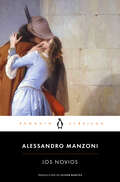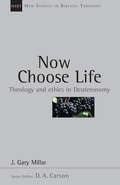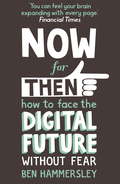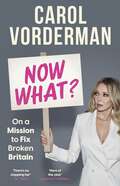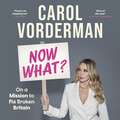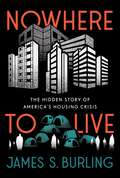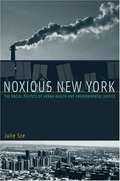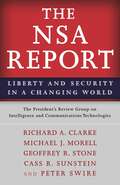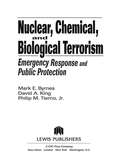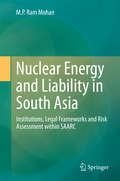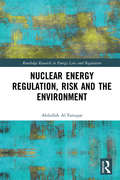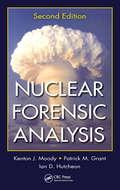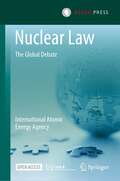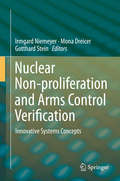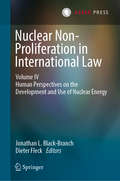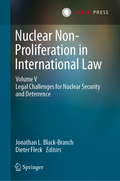- Table View
- List View
Notorious Woman: The Celebrated Case of Myra Clark Gaines (Southern Biography Series)
by Elizabeth Urban AlexanderThe legal crusade of Myra Clark Gaines (1804?--1885) has all the trappings of classic melodrama -- a lost heir, a missing will, an illicit relationship, a questionable marriage, a bigamous husband, and a murder. For a half century the daughter of New Orleans millionaire Daniel Clark struggled to justify her claim to his enormous fortune in a case that captivated the nineteenth-century public. Elizabeth Urban Alexander taps voluminous court records and letters to unravel the twists and turns of Gaines's litigation and reveal the truth behind the mysterious saga of this notorious woman.Myra, the daughter of real estate heir Clark and Zulime Carrière, a beautiful young Frenchwoman, was raised by friends of Clark and kept ignorant of her real parentage until 1832, when she discovered her true lineage in letters among her foster father's papers. She thereupon returned to Louisiana with tales of a lost will and a secret marriage between Clark and Carrière and claimed to be Clark's missing heir. Was Myra the legitimate daughter of the prominent merchant or the "fruit of an adulterous union?" The courts would decide.The Great Gaines Case wound its tortuous path through the United States legal system from 1834 until 1891. It was considered by the U.S. Supreme Court seventeen times and pursued even after Gaines's death by lawyers trying to recoup fees. By courageously bringing her case to the courtroom and doggedly keeping it there, Alexander asserts, Gaines helped instigate a new type of family law that provided special protection of women, children, and marriages.Though Gaines never recovered more than a tiny fraction of the rumored millions, this riveting chronicle of her struggle for legitimacy and legacy as told by Elizabeth Urban Alexander is a gold mine for anyone interested in legal history, women's studies, or a good yarn superbly spun.
Nourishing the Inner Life of Clinicians and Humanitarians: The Ethical Turn in Psychoanalysis
by Donna M. OrangeNourishing the Inner Life of Clinicians and Humanitarians: The Ethical Turn in Psychoanalysis, demonstrates the demanding, clinical and humanitarian work that psychotherapists often undertake with fragile and devastated people, those degraded by violence and discrimination. In spite of this, Donna M. Orange argues that there is more to human nature than a relentlessly negative view. Drawing on psychoanalytic and philosophical resources, as well as stories from history and literature, she explores ethical narratives that ground hope in human goodness and shows how these voices, personal to each analyst, can become sources of courage, warning and support, of prophetic challenge and humility which can inform and guide their work. Over the course of a lifetime, the sources change, with new ones emerging into importance, others receding into the background. Donna Orange uses examples from ancient Rome (Marcus Aurelius), from twentieth century Europe (Primo Levi, Emmanuel Levinas, Dietrich Bonhoeffer), from South Africa (Nelson Mandela), and from nineteenth century Russia (Fyodor Dostoevsky). She shows how not only can their words and examples, like those of our personal mentors, inspire and warn us; but they also show us the daily discipline of spiritual self-care, although these examples rely heavily on the discipline of spiritual reading, other practitioners will find inspiration in music, visual arts, or elsewhere and replenish the resources regularly. Nourishing the Inner Life of Clinicians and Humanitarians will help psychoanalysts to develop a language with which to converse about ethics and the responsibility of the therapist/analyst. This is an exceptional contribution highly suitable for practitioners and students of psychoanalysis and psychotherapy. Donna M. Orange teaches, consults, and offers study groups for psychoanalysts and gestalt therapists. She seeks to integrate contemporary psychoanalysis with radically relational ethics. Recent books are Thinking for Clinicians: Philosophical Resources for Contemporary Psychoanalysis and the Humanistic Psychotherapies (2010), and The Suffering Stranger: Hermeneutics for Everyday Clinical Practice (2011), both from Routledge.
The Novel and the Multispecies Soundscape (Palgrave Studies in Animals and Literature)
by Ben De BruynThe contemporary novel is not as silent as we tend to believe, nor does it only attend to human plots and characters. As this book shows, writers in a range of subgenres have devoted considerable attention to the voices of nonhuman animals, and to the histories and technologies of listening that shape twenty-first-century cultures and environments. In doing so, their multispecies novels illuminate the cultural meanings we attach to creatures like dogs, frogs, whales, chimpanzees, and Tasmanian tigers – not to mention various bird species and even plants. At the same time, these stories explore the attitudes of distinct communities of human listeners, ranging from vets and musicians to chimp caretakers and sonar technicians. In highlighting animal sounds and their cultural meanings, these novels by authors including Amitav Ghosh, Julia Leigh, Richard Powers, Karen Joy Fowler, Cormac McCarthy, and Han Kang also enrich pressing debates about species extinction, sound pollution, nonhuman communication, and human-animal relations. As we are violently reshaping the planet, they invite us to reimagine our own humanity and animality – and to rethink how we tell stories about multispecies contact zones and their complex soundscapes.
The Novel and the New Ethics (Post*45)
by Dorothy J. HaleFor a generation of contemporary Anglo-American novelists, the question "Why write?" has been answered with a renewed will to believe in the ethical value of literature. Dissatisfied with postmodernist parody and pastiche, a broad array of novelist-critics—including J.M. Coetzee, Toni Morrison, Zadie Smith, Gish Jen, Ian McEwan, and Jonathan Franzen—champion the novel as the literary genre most qualified to illuminate individual ethical action and decision-making within complex and diverse social worlds. Key to this contemporary vision of the novel's ethical power is the task of knowing and being responsible to people different from oneself, and so thoroughly have contemporary novelists devoted themselves to the ethics of otherness, that this ethics frequently sets the terms for plot, characterization, and theme. In The Novel and the New Ethics, literary critic Dorothy J. Hale investigates how the contemporary emphasis on literature's social relevance sparks a new ethical description of the novel's social value that is in fact rooted in the modernist notion of narrative form. This "new" ethics of the contemporary moment has its origin in the "new" idea of novelistic form that Henry James inaugurated and which was consolidated through the modernist narrative experiments and was developed over the course of the twentieth century. In Hale's reading, the art of the novel becomes defined with increasing explicitness as an aesthetics of alterity made visible as a formalist ethics. In fact, it is this commitment to otherness as a narrative act which has conferred on the genre an artistic intensity and richness that extends to the novel's every word.
Novel Foods and Edible Insects in the European Union: An Interdisciplinary Analysis
by Lucia Scaffardi Giulia FormiciThis open access book proposes an in-depth study on a vast range of issues connected to the regulation of Novel Foods in the European Union, pursuing an interdisciplinary approach and thus providing a comprehensive picture of this complex topic. Particular attention is paid not only to the current EU legislative framework, its positive innovations, unsolved problems and limits, but also to food safety issues and the potential impact of Novel Foods on sustainability and food security. In addition, the book focuses on a particular category of Novel Foods: insects for human consumption. These products recently gained momentum after the first EU Commission authorisation of dried yellow mealworm (Tenebrio molitor) in 2021. The book contributes to the lively public debate following this long-awaited authorisation by examining the legal issues arising from the application of the Novel Foods Regulation to these peculiar new foods; the EFSA risk assessment evaluations; the consumers’ perceptions and potential future of insect-based products’ market in the EU. By providing such an extensive analysis, including recent developments and future prospects, the book represents a valuable tool for students and academics, but also institutions and public authorities, helping them understanding the various challenges related to Novel Foods and edible insects. Furthermore, it seeks to promote an informed debate in order to find innovative solutions to pressing problems concerning how to feed the world of tomorrow.
Novel Foods in the European Union (SpringerBriefs in Molecular Science)
by Daniele Pisanello Giorgia CarusoThis Brief describes in three concise chapters one of the newest ‘hot topics’ under EU Food Law and Policy: the new Regulation (EU) No 2015/2283 from the European Parliament and by the Council, November 25, 2015, on novel foods, applicable from January 2018. In this work, the Authors discuss the long-time criticized EU Regulation on novel foods ((EC) No 258/1997) and how it has been significantly altered by the adoption of the new regulation. In the first chapter, the Authors provide a comprehensive analysis of the genesis of the new Regulation, its rationale and the policy’s goals. In particular, they describe what food business operators shall do in order to get a new product allowed on the EU market, providing updated information on the regulatory developments from the European Food Safety Authority in nanofoods, cloned animals and insect foods. The role of the European Food Safety Authority is also discussed. The second Chapter summarizes the current toxicological studies used to evaluate novel foods safety, which are an extremely important pillar when speaking of food safety and commercial introduction of new products. Finally, the third Chapter discusses the ‘history of safe use’ approach to the problem of novel foods, and factors such as consumption period analysis, preparation advices and processes, intake levels, nutritional composition, and results of animal studies. Food lawyers, professionals and auditors working in the area of official inspections, quality assurance, food traceability, and international regulation, both in academia and industry, will find this Brief an important account.
Novel Judgements: Legal Theory as Fiction
by William P. MacNeilNovel Judgements is a book about nineteenth century Anglo-American law and literature. But by redefining law as legal theory, Novel judgements departs from ‘socio-legal’ studies of law and literature, often dated in their focus on past lawyering and court processes. This texts ‘theoretical turn’ renders the period’s ‘law-and-literature’ relevant to today’s readers because the nineteenth century novel, when "read jurisprudentially", abounds in representations of law’s controlling concepts, many of which are still with us today. Rights, justice, law’s morality; each are encoded novelistically in stock devices such as the country house, friendship, love, courtship and marriage. In so rendering the public (law) as private (domesticity), these novels expose for legal and literary scholars alike the ways in which law comes to mediate all relationships—individual and collective, personal and political—during the nineteenth century, a period as much under the Rule of Law as the reign of Capital. So these novels pass judgement—a novel judgement—on the extent to which the nineteenth century’s idea of law is collusive with that era’s Capital, thereby opening up the possibility of a new legal theoretical position: that of a critique of the law and a law of critique.
Los novios
by Alessandro ManzoniLa novela más importante de la literatura italiana moderna en una versión castellana insuperable Prólogo de Francesco Luti Traducción de Esther Benítez Enmarcada en la ocupación española de Lombardía durante el siglo XVII, Los novios cuenta la historia de Lucía y Renzo, dos enamorados de origen campesino que se ven cruelmente separados y que, en sus intentos por reunirse, se enfrentarán a los peligros e iniquidades de una época despiadada. Con temas como el amor, la fe y el poder, la obra perdura no solo como la más importante de Alessandro Manzoni, sino como el primer y mejor ejemplo de la novela italiana moderna. Nuestra edición ofrece un lúcido prólogo de Francesco Luti, profesor de la Universidad Autónoma de Barcelona, y recupera la aclamada traducción de Esther Benítez, que acerca toda la fuerza del original a los lectores hispanohablantes. La crítica ha dicho:«El clásico literario italiano del siglo XIX conocido por sus vívidas descripciones de la peste de 1630 que destruyó Milán». The New York Times «Los novios está entre las mejores novelas que se han escrito. Es perfecta en el interés de la trama, en la documentación histórica, en la frescura de los personajes, en la soltura de los diálogos, en los cambios de ritmo, en los desenlaces, en la habilidad para penetrar los secretos de los corazones».Rafael Gómez Pérez, aceprensa.org «La obra más importante del escritor italiano Alessandro Manzoni. El libro es el primer exponente de la novela italiana moderna y con la Divina comedia de Dante Alighieri es considerada la obra de la literatura italiana más importante y estudiada en las escuelas italianas».Lecturalia
Now Choose Life: Theology and Ethics in Deuteronomy (New Studies in Biblical Theology #Volume 6)
by Gary MillarThough written thousands of years ago, the book of Deuteronomy is unmatched in its relevance for the affluent Western church of today. Moses' words were meant to equip God's people for living godly lives in a prosperous, pluralistic world. The cultural changes now taking place in our own social setting make the parallel between Israel and the church—and what Deuteronomy has to say—both pertinent and instructive. This New Studies in Biblical Theology volume offers a significant study of Deuteronomy that recovers this Scripture's vibrant message for the contemporary Christian community. Showing the major contribution that Deuteronomy makes to our understanding of the Bible as a whole, J. Gary Millar explores Deuteronomy's ethical teaching in the light of its most important theological themes: covenant, journey, law, the nations and human nature. His perceptive analysis reveals the power with which Deuteronomy calls God's covenant people, from ancient Israelites to modern-day Christians, to hear God's voice and do his will. Whether read for its critical study of Scripture or for its practical insights into living faithfully today, this book will be a valuable resource for school, church and home. Addressing key issues in biblical theology, the works comprising New Studies in Biblical Theology are creative attempts to help Christians better understand their Bibles. The NSBT series is edited by D. A. Carson, aiming to simultaneously instruct and to edify, to interact with current scholarship and to point the way ahead.
Now For Then: How To Face The Digital Future Without Fear
by Ben HammersleyIn 64 THINGS YOU NEED TO KNOW NOW FOR THEN, Editor-at-Large for Wired magazine and guru of the digital age Ben Hammersley gives us the essential guide to the things we need to know for life in the 21st century. Explaining the effects of the changes in the modern world, and the latest ideas in technology, culture, business and politics, this book will demystify the internet, decode cyberspace, and guide you through the innovations of the revolution we are all living through. This is not a book for geeks. 64 THINGS YOU NEED TO KNOW NOW FOR THEN is for everyone who wants to truly understand the modern world, to no longer be confused by the changes in society, business and culture, and to truly prosper in the coming decade.
Now For Then: How to Face the Digital Future Without Fear
by Ben HammersleyIn 64 THINGS YOU NEED TO KNOW NOW FOR THEN, Editor-at-Large for Wired magazine and guru of the digital age Ben Hammersley gives us the essential guide to the things we need to know for life in the 21st century. Explaining the effects of the changes in the modern world, and the latest ideas in technology, culture, business and politics, this book will demystify the internet, decode cyberspace, and guide you through the innovations of the revolution we are all living through. This is not a book for geeks. 64 THINGS YOU NEED TO KNOW NOW FOR THEN is for everyone who wants to truly understand the modern world, to no longer be confused by the changes in society, business and culture, and to truly prosper in the coming decade.
Now What?: On a Mission to Fix Broken Britain
by Carol VordermanPolitics: The three vowels and five consonants which control our world.'But what has politics got to do with me?' I hear you ask. Well, quite a lot really. Whether you like it or not, it affects every single thing in your life from the moment you wake up in the morning until you crawl into bed at night.But some of our political elite make it feel like a club which we have not been invited to join. The privileged few who want to keep it all for the privileged few. I hope this book can explain much, make you laugh out loud and make you realise that together our voices are powerful.Buckle up and come on a political rollercoaster with me - 'an old bird with an iPhone'. This is a book for people who don't normally think about politics. We have a new government and have bid a loud goodbye to the Tories, but the issues that allowed the last government to mismanage and deceive us for so long lie deep. Amidst a landscape of economic turmoil and deepening societal fractures, we need to see a new age of accountability in our political system.With her characteristic outspokenness and irrepressible sense of humour, in Now What? On a Mission to Fix Broken Britain, Carol Vorderman exposes the intricate web of influence responsible for our nation's unravelling and provides us with a toolkit for building a better and fairer Britain.Part diary, part manifesto, part journey down the rabbit hole of British politics, this is the story of how 'an old bird with an iPhone' exposed the incompetence and lies of the establishment, and inspired countless others to find their voice and stand up for what they believe in.
Now What?: On a Mission to Fix Broken Britain
by Carol VordermanPolitics: The three vowels and five consonants which control our world.'But what has politics got to do with me?' I hear you ask. Well, quite a lot really. Whether you like it or not, it affects every single thing in your life from the moment you wake up in the morning until you crawl into bed at night.But some of our political elite make it feel like a club which we have not been invited to join. The privileged few who want to keep it all for the privileged few. I hope this book can explain much, make you laugh out loud and make you realise that together our voices are powerful.Buckle up and come on a political rollercoaster with me - 'an old bird with an iPhone'. This is a book for people who don't normally think about politics. We have a new government and have bid a loud goodbye to the Tories, but the issues that allowed the last government to mismanage and deceive us for so long lie deep. Amidst a landscape of economic turmoil and deepening societal fractures, we need to see a new age of accountability in our political system.With her characteristic outspokenness and irrepressible sense of humour, in Now What? On a Mission to Fix Broken Britain, Carol Vorderman exposes the intricate web of influence responsible for our nation's unravelling and provides us with a toolkit for building a better and fairer Britain.Part diary, part manifesto, part journey down the rabbit hole of British politics, this is the story of how 'an old bird with an iPhone' exposed the incompetence and lies of the establishment, and inspired countless others to find their voice and stand up for what they believe in.
Now What?: On a Mission to Fix Broken Britain
by Carol VordermanPolitics: The three vowels and five consonants which control our world.'But what has politics got to do with me?' I hear you ask. Well, quite a lot really. Whether you like it or not, it affects every single thing in your life from the moment you wake up in the morning until you crawl into bed at night.But some of our political elite make it feel like a club which we have not been invited to join. The privileged few who want to keep it all for the privileged few. I hope this book can explain much, make you laugh out loud and make you realise that together our voices are powerful.Buckle up and come on a political rollercoaster with me - 'an old bird with an iPhone'. This is a book for people who don't normally think about politics. We have a new government and have bid a loud goodbye to the Tories, but the issues that allowed the last government to mismanage and deceive us for so long lie deep. Amidst a landscape of economic turmoil and deepening societal fractures, we need to see a new age of accountability in our political system.With her characteristic outspokenness and irrepressible sense of humour, in Now What? On a Mission to Fix Broken Britain, Carol Vorderman exposes the intricate web of influence responsible for our nation's unravelling and provides us with a toolkit for building a better and fairer Britain.Part diary, part manifesto, part journey down the rabbit hole of British politics, this is the story of how 'an old bird with an iPhone' exposed the incompetence and lies of the establishment, and inspired countless others to find their voice and stand up for what they believe in.
Nowhere to Live: The Hidden Story of America's Housing Crisis
by James S. BurlingA century of policy mistakes ruined America&’s cities and created an unprecedented housing crisis. For many families, homelessness is no longer someone else&’s problem. It is right around the corner, a real threat in their own immediate future. Our housing crisis is the result of a long history of government policies, court cases, and political manipulation. While these disparate causes make up a tangled web, they have one surprising root: the attack on private property rights. For more than a century, government policies and court decisions have attacked, undermined, and eroded private property rights. Whether it be exclusionary zoning, eminent domain abuse, rent control, or excessive environmental regulations, the cumulative impact of these assaults on private property is that it&’s become increasingly difficult—or even impossible—to build adequate housing supplies to meet market demands. We are fast approaching a time when millions of typical Americans will, quite literally, have nowhere to live. Nowhere to Live: The Hidden Story of America&’s Housing Crisis, takes readers through the history of how we got here. With stories going back to the Civil War, the early twentieth century, and the ill-fated &“urban renewal&” movement of the 1950s, Nowhere to Live reveals how the government layered mistake upon mistake to create the current crisis. It also provides a way out: not by government fiat, but through the restoration of private property rights.
Noxious New York: The Racial Politics of Urban Health and Environmental Justice
by Julie SzeDrawing extensively on fieldwork and interviews with community members and activists, Sze illuminates the complex mix of local and global issues that fuels environmental justice activism.
The NSA Report: Liberty and Security in a Changing World
by President's Review Group on Intelligence and Communications Technologies, The Richard A. Clarke Michael J. Morell Geoffrey R. Stone Cass R. Sunstein Peter SwireThe official report that has shaped the international debate about NSA surveillance"We cannot discount the risk, in light of the lessons of our own history, that at some point in the future, high-level government officials will decide that this massive database of extraordinarily sensitive private information is there for the plucking. Americans must never make the mistake of wholly 'trusting' our public officials."—The NSA ReportThis is the official report that is helping shape the international debate about the unprecedented surveillance activities of the National Security Agency. Commissioned by President Obama following disclosures by former NSA contractor Edward J. Snowden, and written by a preeminent group of intelligence and legal experts, the report examines the extent of NSA programs and calls for dozens of urgent and practical reforms. The result is a blueprint showing how the government can reaffirm its commitment to privacy and civil liberties—without compromising national security.
Nuclear, Chemical, and Biological Terrorism: Emergency Response and Public Protection
by Mark E. Byrnes David A. King Philip M. Tierno Jr.This book provides guidance on measures that should be considered to protect human lives from terrorist activities involving nuclear, chemical, and biological weapons. It provides a historical summary of the development and use of these weapons, and continues with a detailed discussion of the types of radiation and warfare agents that are available
Nuclear Energy and Liability in South Asia
by M. P. Ram MohanThis book advocates pursuing a regional approach to nuclear risk framework, which it argues is more promising in the current scenario than the non-achievable global regime. In the development of international legislation on liability, the nuclear energy sector represents an alternative approach to a transboundary liability regime. Building on this foundation and following the Chernobyl accident, international consensus was sought for a stronger transboundary legal regime in the event of a nuclear disaster. However, after sixty years of the existence of international nuclear liability laws and twenty-five years after Chernobyl, the primary objectives of the Conventions - harmonization and a global regime - remain unfulfilled. Further, many countries are now creating or expanding nuclear programs without adequate transboundary legal protection. In light of these issues, a regional approach is an option that cannot be ignored. Given its rapidly expanding nuclear energy footprint, South Asia is in a unique position to adopt a regional mechanism. The methodology adopted for the study in the book combines a literature review of international law on nuclear liability with an analysis of South Asian nuclear energy programs and their international and national legal obligations. A technical risk assessment study conducted to identify the level of transboundary nuclear risk within South Asia is also presented. This is followed by interviews with experts and policymakers to gauge the willingness of the South Asian Association for Regional Cooperation (SAARC) community to respond to this shared regional concern.
Nuclear Energy Regulation, Risk and The Environment (Routledge Research in Energy Law and Regulation)
by Abdullah Al FaruqueAnalyzing the impact and benefits of nuclear energy on environment, this book examines nuclear treaties in relation to environmental protection, highlights legal framework on non-proliferation and denuclearization, explores treaties on nuclear safety and nuclear security, discusses legal regimes on management of nuclear wastes, assesses the third-party liability regime and discusses the role of IAEA, EURATOM and NEA in regulating nuclear energy. It explores nuclear energy in the context of climate change and sustainable development. This book also examines the international legal framework on notification, assistance and emergency preparedness in the event of nuclear accidents, considers legal aspects of decommissioning of nuclear power plants and main legislative trends on nuclear energy use in selected countries. It also addresses regulatory responses to nuclear energy in the wake of the Fukushima power plant nuclear accident in Japan.
Nuclear Forensic Analysis
by Kenton J. Moody Patrick M. Grant Ian D. HutcheonNow in its second edition, Nuclear Forensic Analysis provides a multidisciplinary reference for forensic scientists, analytical and nuclear chemists, and nuclear physicists in one convenient source. The authors focus particularly on the chemical, physical, and nuclear aspects associated with the production or interrogation of a radioactive sample.
Nuclear Law: The Global Debate
by International Atomic Energy AgencyThis open access book traces the journey of nuclear law: its origins, how it has developed, where it is now, and where it is headed. As a discipline, this highly specialized body of law makes it possible for us to benefit from the life-saving applications of nuclear science and technology, including diagnosing cancer as well as avoiding and mitigating the effects of climate change. This book seeks to give readers a glimpse into the future of nuclear law, science and technology. It intends to provoke thought and discussion about how we can maximize the benefits and minimize the risks inherent in nuclear science and technology. This compilation of essays presents a global view in discipline as well as in geography. The book is aimed at representatives of governments—including regulators, policymakers and lawmakers—as well representatives of international organizations and the legal and insurance sectors. It will be of interest to all those keen to better understand the role of law in enabling the safe, secure, and peaceful use of nuclear technology around the world. The contributions in this book are written by leading experts, including the IAEA’s Director General, and discuss the four branches of nuclear law—safety, security, safeguards and nuclear liability—and the interaction of nuclear law with other fields of national and international law.
Nuclear Non-proliferation and Arms Control Verification: Innovative Systems Concepts
by Irmgard Niemeyer Mona Dreicer Gotthard SteinThis book strives to take stock of current achievements and existing challenges in nuclear verification, identify the available information and gaps that can act as drivers for exploring new approaches to verification strategies and technologies. With the practical application of the systems concept to nuclear disarmament scenarios and other, non-nuclear verification fields, it investigates, where greater transparency and confidence could be achieved in pursuit of new national or international nonproliferation and arms reduction efforts. A final discussion looks at how, in the absence of formal government-to-government negotiations, experts can take practical steps to advance the technical development of these concepts.
Nuclear Non-Proliferation in International Law - Volume IV: Human Perspectives On The Development And Use Of Nuclear Energy
by Jonathan L. Black-Branch Dieter FleckThis fourth volume in the book series on Nuclear Non-Proliferation in InternationalLaw focuses on human perspectives regarding the development and use of nuclearenergy; the need for regional solutions; and recent activities towards prohibiting andabolishing nuclear weapons.Jonathan L. Black-Branch is Dean of Law and Professor of International and ComparativeLaw; Bencher of the Law Society of Manitoba; JP and Barrister (England & Wales);Barrister & Solicitor (Manitoba); and, Chair of the International Law Association (ILA)Committee on Nuclear Weapons, Non- Proliferation & Contemporary International Law.Dieter Fleck is Former Director International Agreements & Policy, Federal Ministryof Defence, Germany; Member of the Advisory Board of the Amsterdam Center forInternational Law (ACIL); and Rapporteur of the International Law Association (ILA)Committee on Nuclear Weapons, Non- Proliferation & Contemporary International Law.
Nuclear Non-Proliferation in International Law - Volume V: Legal Challenges for Nuclear Security and Deterrence
by Jonathan L. Black-Branch Dieter FleckThis fifth volume in the book series on Nuclear Non-Proliferation in International Law focuses on various legal aspects regarding nuclear security and nuclear deterrence. The series on Nuclear Non-Proliferation in International Law provides scholarly research articles with critical commentaries on relevant treaty law, best practice and legal developments, thus offering an academic analysis and information on practical legal and diplomatic developments both globally and regionally. It sets a basis for further constructive discourse at both national and international levels. Jonathan L. Black-Branch is Dean of Law and Professor of International and Comparative Law at the University of Manitoba in Canada; a Bencher of the Law Society of Manitoba; JP and Barrister (England & Wales); Barrister & Solicitor (Manitoba); and Chair of the International Law Association (ILA) Committee on Nuclear Weapons, Non-Proliferation & Contemporary International Law. Dieter Fleck is Former Director International Agreements & Policy, Federal Ministry of Defence, Germany; Member of the Advisory Board of the Amsterdam Center for International Law (ACIL); and Rapporteur of the International Law Association (ILA) Committee on Nuclear Weapons, Non-Proliferation & Contemporary International Law.
